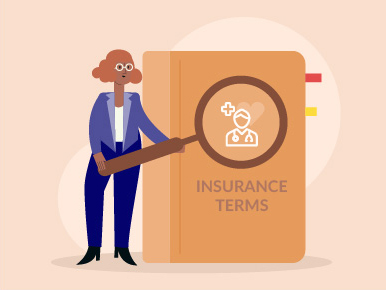Looking for new cover? If you have a pre-existing medical condition, you may be wondering how it may affect your new insurance application.
Well, it may come as a surprise to many, but a pre-existing condition isn't necessarily more expensive to cover or completely 'uncoverable' altogether. As always, your circumstances matter - so here are some key things to know and steps you can take.
Pre-existing conditions aren't always excluded
Contrary to popular belief, not all medical conditions will affect your 'insurability'. And even if they did, a complete exclusion may not be on the cards for you.
When assessing your application, the insurer will consider your unique circumstances, including things like risky hobbies or jobs, of course, past and ongoing medical diagnoses.
Following this assessment, they will decide whether special conditions need to be attached to your policy. For example, they might:
- exclude your condition (permanently or for a limited time); or
- cover your condition, by adding a "loading" to your premium (essentially, increasing the premium to cover the additional risk).
Not sure where you stand?
Give us a call on 0800 800 400 or send us a message.
Not only we can help you understand the fine print, but we also know the market inside and out and can let you know about any available promotions. For example, some providers may cover certain pre-existing conditions if you keep the same policy with them for a set period.
Lastly, if you take out cover with us, we can review your insurance on a regular basis and check with the insurer whether any exclusions or loadings can be reviewed later on, depending on your circumstances.
And finally, beware of non-disclosure
Whatever the outcome might be, it's always important to fully disclose any health conditions - past and present - you may have in your medical history, no matter how insignificant or far removed they might seem.
While it can be easy to overlook small events, or even forget about things that happened a long time ago, remember - no matter if intentional or unintentional, non-disclosure may result in a claim being denied down the track.
When it comes to insurance applications, there's really no such thing as "too much information." So, our advice is: disclose, disclose, disclose.
Not sure which option is most appropriate for you? Give our friendly insurance advisers a call on 0800 800 400 or send us a message.
Disclaimer: Please note that the content provided in this article is intended as an overview and as general information only. While care is taken to ensure accuracy and reliability, the information provided is subject to continuous change and may not reflect current developments or address your situation. Before making any decisions based on the information provided in this article, please use your discretion and seek independent guidance.












